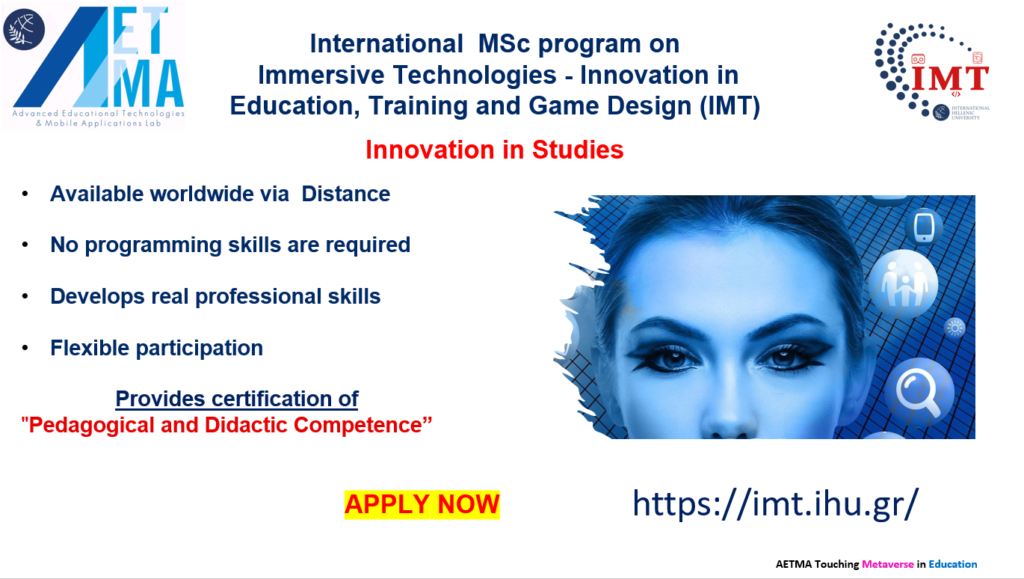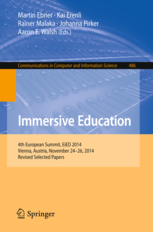Our chapter about „Determining the Causing Factors of Errors for Multiplication Problems“ as part of the book „Immersive Education“ got published.
Abstract:
Literature in the area of psychology and education provides domain knowledge to learning applications. This work detects the difficulty levels within a set of multiplication problems and analyses the dataset on different error types as described and determined in several pedagogical surveys and investigations. Our research sheds light to the impact of each error type in simple multiplication problems and the course of error types in problem-size.
[Link to draft version at ResearchGate]
Reference: Taraghi, B., Frey, M., Saranti, A., Ebner, M., Müller, V. Großmann, A.(2015) Determining the Causing Factors of Errors for Multiplication Problems. In: Immersive Education. Ebner, M., Erenli, K., Malaka, R., Pirker, J., Walsh, A. (Eds.). Communications in Computer and Information Science 486. Springer. pp. 27-38


